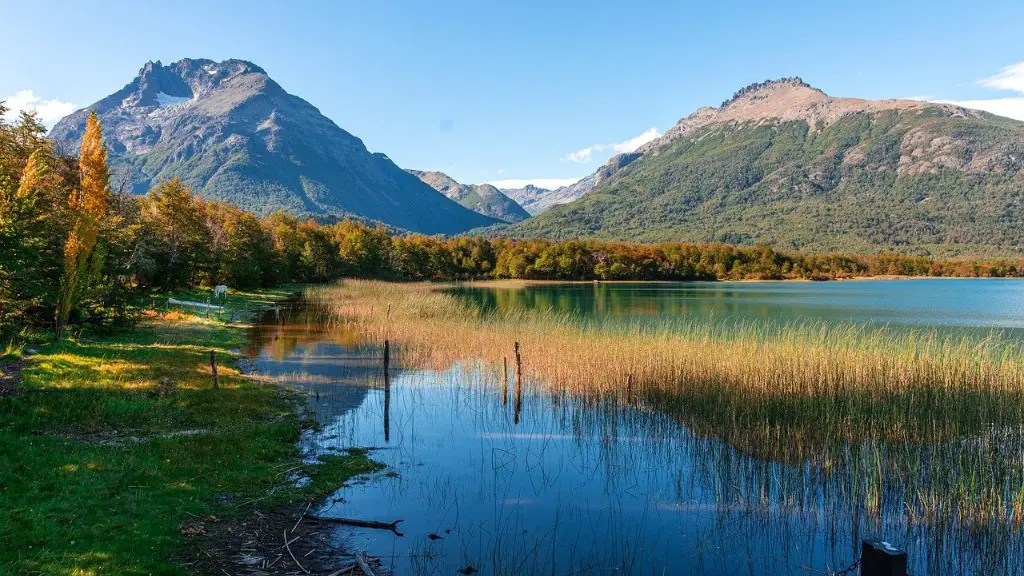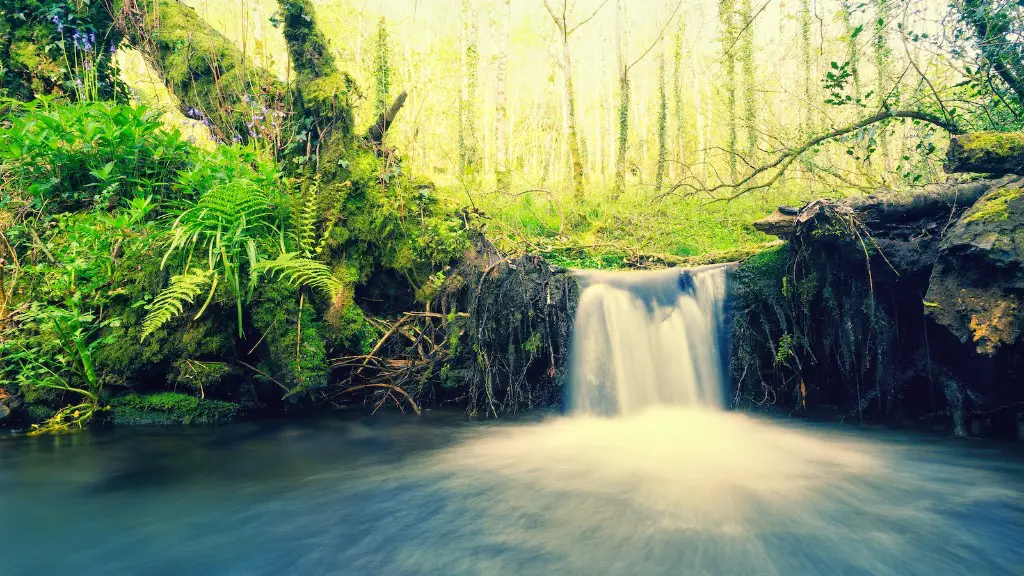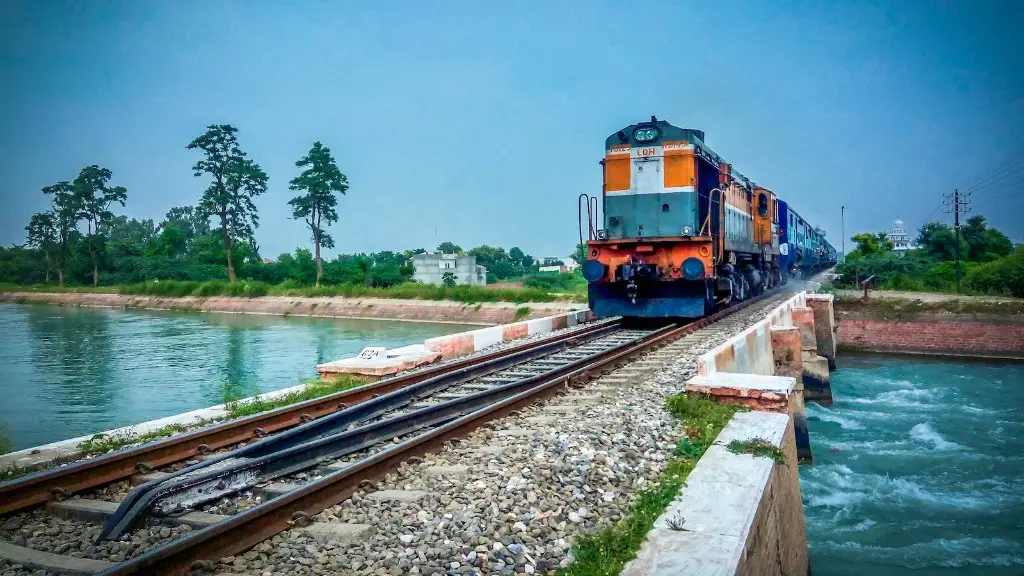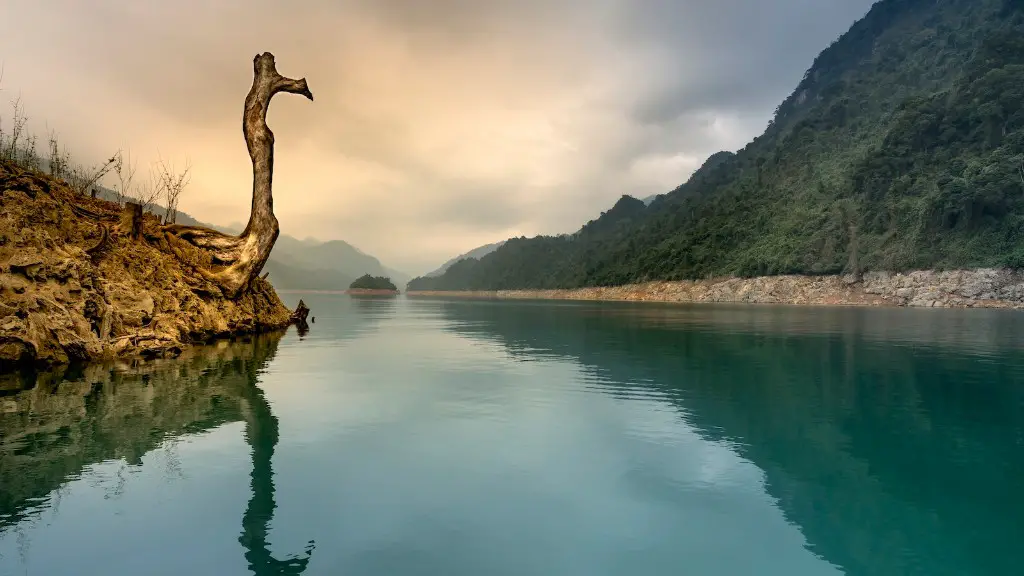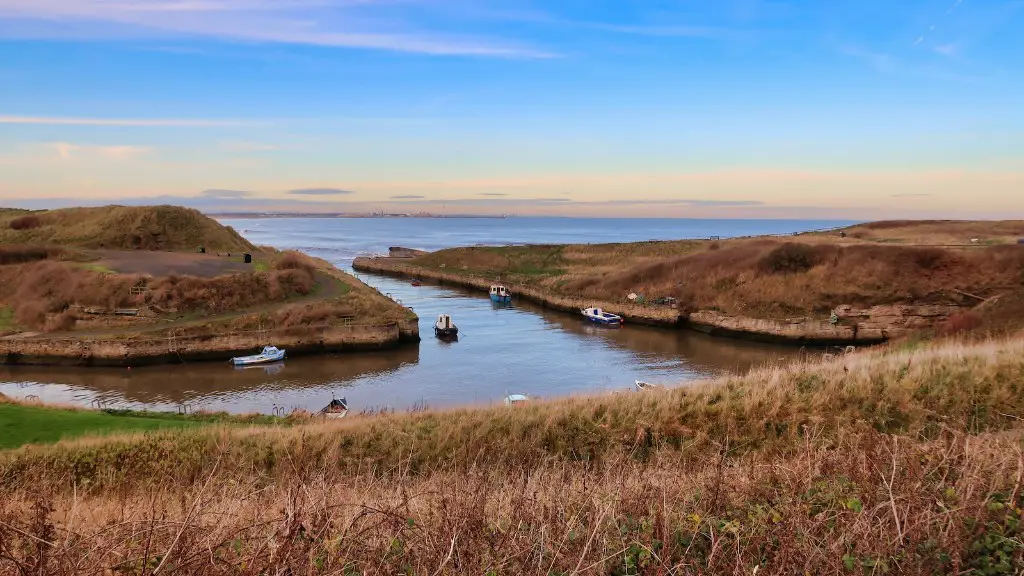The Mississippi River is one of the most important resources in the United States, providing crucial water for drinking, agriculture, and transportation. It stretches nearly 3,000 miles from Minnesota, south to the Gulf of Mexico, and holds the distinction as the fourth longest river in the world. Humans have been utilizing the Mississippi River since it was first discovered, and their influence has been both beneficial and damaging.
Initially, the Mississippi River provided an ideal route for early explorers and settlers, who used it to navigate and discover new land. The resources the river provided were invaluable to the subsistence of the French and later the Americans. For example, the Cahokia Mounds of Southern Illinois were once connected to the Mississippi River and the powerful cities that were located in the area relied on the river’s resources to fill their lean times.
Today, the Mississippi River is still heavily utilized for both commercial and recreational purposes. In fact, over 500 million tons of material are shipped every year, most of which consist of coal, grain and petroleum. River towns, such as Baton Rouge, New Orleans and Vicksburg, have become industrial ports along the Mississippi as well. The commercial boats that navigate these cities also contribute to the river’s economy, with revenue generated from ports services, shipping fees and taxes.
Unfortunately, humans have not always been kind to the mighty Mississippi. As populations have grown, so has the pollution of its waters. Harmful byproducts from agriculture, industry, animal waste and sewage have all been deleterious to the health of river. These environmental hazards are further exacerbated by overfishing and the overuse of water resources.
Environmental groups have been campaigning to reduce the pollutant levels in the river, and the US Environmental Protection Agency (EPA) has stepped in to help. The EPA has enacted various regulations to limit the amount of pollutants that enter the river, imposed fines for violators, and begun working with companies to cut their environmental footprints. As a result, many water samples taken in the last 50 years have shown a decrease in the levels of pollutants in the rivers, although there is still much work to be done.
Furthermore, experts have suggested that improving infrastructure may also help reduce pollution in the Mississippi. For example, pipelines are being built to transport material away from the river and new sewage treatment facilities are being developed. Additionally, green initiatives such as planting more trees around the riverside can help to absorb pollutants and prevent them from entering the water.
Ultimately, while humans have had a significant and detrimental effect on the Mississippi River, steps are being taken to reduce the environmental impact that we have on our waterways. It is through greater education and increased regulations that we can better protect our waterways from pollution.
Agriculture’s effect on the Mississippi River
Farming is an integral part of the Mississippi region and has had a major effect on the waterway. Intensive farming practices, such as the use of synthetic fertilizers, have caused significant environmental problems by polluting the river with nitrates, phosphates and other contaminants. Excess nitrogen, for example, can have a huge negative impact on aquatic and terrestrial life, causing harmful algal blooms and reducing oxygen levels in the water.
In addition, the runoff from farms and industrial areas often carries eroded soils and other pollutants into the river, affecting its health. Farm chemicals can also destroy entire ecosystems, leading to decreased populations of game fish and shellfish, as well as a decrease in the diversity of plant life.
Fortunately, there are steps that can be taken to reduce the impact that farming pollution has on the Mississippi, such as using more sustainable growing practices and implementing tighter regulations on runoff. Education is also key, as farmers must be made aware of the effect that their practices have on the waterway. Public initiatives have also been put in place to reduce the amount of pollutants, such as the Mississippi River Basin Initiative, which encourages farmers to minimize the environmental impact of their activities.
Communities, government and nonprofits have all worked together to protect the Mississippi and its resources. Education and sustainable practices are a good start in reducing the agricultural pollutants in the river, however, stronger regulations and enforcement will be needed in order to achieve long-term success.
The effects of climate change on the Mississippi River
The effects of climate change and global warming are being felt throughout the planet, and the Mississippi River is no exception. Changes in climate can lead to an increase in floods and droughts, both of which can have an immense effect on the waterway.
Floods can damage crops, homes and other property, while drying out the river can lead to droughts that result in decreased river water levels. This can drastically reduce the amount of water available for drinking, farming, and industrial use. In addition, the effects of climate change on the environment can lead to an increase in saltwater intrusion and destruction of the river’s fragile ecosystems.
In order to combat these effects, we must address the root causes of climate change. Emissions from power plants and vehicles must be reduced, and new methods of energy production must be embraced. Governments also have a role to play, as they can provide incentives to companies that have greener practices, as well as funding research into renewable energy sources.
Furthermore, communities and organizations must continue to educate and raise awareness about the importance of sustainability and the effects of climate change on river ecosystems. While there is still much debate about the overall effects of global warming, the Mississippi River serves as an example of how important it is to address the issue now. Only with a concerted global effort can we protect our water resources from the ravaging effects of climate change.
Navigating a river is no easy feat and can have impacts on its habitats and ecosystems. The locks and dams that have been put in place in order to control the water’s flow can wreak havoc on fish populations. For example, dams and locks can cause juvenile fish to be stranded upstream, leading to population declines and disruptions to migration patterns.
In addition, the navigation of barges, tugboats and other vessels can stir up sediment in the river, resulting in habitat destruction and the loss of essential nutrients that are essential to the health of the waterway. In addition, boats and ships can release harmful contaminants, such as fuel and lubricants, leading to pollution.
In order to protect the wildlife of the Mississippi River, regulations have been put in place to control boat traffic, including speed limits and quotas on vessels. Furthermore, the US Fish and Wildlife Service has built fish passages to help juvenile fish migrate around the locks and dams, and constructed artificial reefs to improve the river habitat.
The importance of protecting our water resources cannot be understated, and the Mississippi River is a prime example of that. While navigation may be necessary for commercial shipping and other purposes, it is essential that we take the necessary steps to protect its wildlife and habitats.
The impact of invasive species on the Mississippi River
Invasive species can cause significant disruption to the ecosystems of rivers and streams, and the Mississippi River is no exception. Species such as the zebra mussel, round goby and Asian carp are amongst the most damaging invaders to the environment, disrupting habitats, eating away at food supplies and reducing local biodiversity.
In addition, these species can also cause economic damage. For example, zebra mussels attach themselves to pipes, boats and other structures, which can cause clogging and blockages in these areas. Asian carp, on the other hand, can deplete food resources, leading to declines in native species populations.
In order to combat the spread of invasive species, it is important to practice good hygiene when fishing or boating, removing any plants or animals that have attached themselves to boats and angling gear. Additionally, local governments have enacted laws and regulations to help limit the spread of invasive species, and organizations have worked to educate the public on the dangers that these species pose.
In conclusion, it is clear that humans have had both positive and negative influences on the Mississippi River. It is our responsibility to protect this invaluable resource, not only for ourselves but for future generations.
